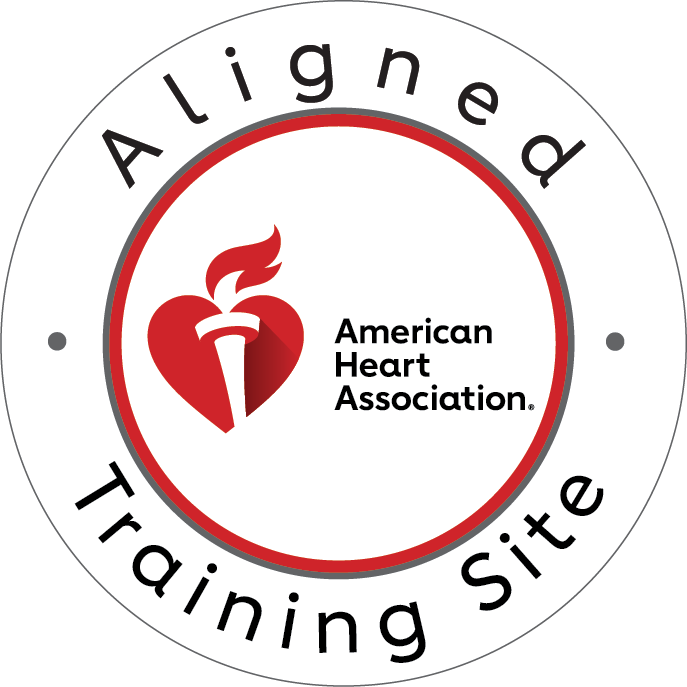In emergencies, knowledge of proper cardiopulmonary resuscitation (CPR) techniques can mean the difference between life and death. CPR is a lifesaving skill that everyone should possess, as it can be the first line of defense in responding to cardiac arrests or other life-threatening emergencies. However, not all CPR training programs are created equal. Selecting an authorized training center that adheres to the guidelines set by the American Heart Association (AHA) is crucial to ensure you receive high-quality, up-to-date instruction.
1. What is an AHA-Authorized CPR Training Center?
The American Heart Association is a leading organization dedicated to promoting cardiovascular health and preventing heart disease and stroke. As part of its mission, the AHA establishes guidelines and standards for CPR and emergency cardiovascular care training. An AHA-authorized CPR training center is an institution that has met rigorous criteria and has been accredited by the AHA to provide CPR and related training programs.
To become an AHA-authorized training center, facilities must undergo a comprehensive evaluation process. This includes demonstrating adherence to the AHA’s current emergency cardiovascular care guidelines, using approved course materials and educational resources, and employing qualified instructors who have completed the necessary training and certification requirements.
The AHA’s quality assurance measures ensure that authorized training centers maintain a consistent level of excellence in their instruction. Regular audits and evaluations are conducted to verify that the centers are providing up-to-date training under the latest guidelines and best practices.
By choosing an AHA-authorized CPR training center, you can be confident that you are receiving instruction that is backed by the most current and widely accepted CPR techniques and protocols. This standardization is crucial, as it ensures that CPR providers across the country are trained consistently, which can improve coordination and effectiveness in emergencies.
2. Benefits of AHA-Authorized CPR Training
Opting for CPR training from an AHA-authorized center offers several key benefits that contribute to the quality and effectiveness of the instruction:
Adherence to the Latest AHA Guidelines and Techniques
The AHA continuously reviews and updates its guidelines based on the latest research and best practices in emergency cardiovascular care. AHA-authorized training centers are required to incorporate these updates into their curriculum, ensuring that participants receive training in the most current and effective CPR techniques.
Use of Approved Course Materials and Educational Resources
AHA-authorized centers use course materials and educational resources that have been thoroughly vetted and approved by the AHA. These resources are designed to facilitate effective learning and skill retention, incorporating various teaching methods, such as hands-on practice, video demonstrations, and interactive scenarios.
Qualified and Experienced Instructors
Instructors at AHA-authorized training centers must meet strict qualifications and undergo rigorous training themselves. They are required to maintain their certification through ongoing education and professional development, ensuring they remain knowledgeable about the latest guidelines and teaching methodologies.
Hands-on Practice and Skills Evaluation
Effective CPR training goes beyond theoretical knowledge; it also requires hands-on practice and skill evaluation. AHA-authorized centers provide ample opportunities for participants to practice CPR techniques on manikins and receive feedback from qualified instructors. This practical experience is crucial for developing muscle memory and confidence in performing CPR correctly during an emergency.
By choosing an AHA-authorized CPR training center, you can be assured that you are receiving high-quality instruction that aligns with the latest guidelines and best practices. This not only enhances your ability to respond effectively in emergency situations but also contributes to the overall preparedness and coordination of CPR providers nationwide.
3. Importance of Proper CPR Training
The importance of proper CPR training cannot be overstated, as it plays a critical role in saving lives during medical emergencies. Effective CPR can help maintain blood flow and oxygen supply to the brain and vital organs, increasing the chances of survival until advanced medical care is available.
Improper or outdated CPR techniques can be ineffective or even harmful. Incorrect chest compressions, for instance, may not provide adequate blood flow, while improper ventilation techniques can lead to complications or further injuries. In some cases, lack of proper training can lead to hesitation or inaction, which can be detrimental in time-sensitive emergencies.
Regular recertification and skill maintenance are also essential in CPR training. Skills can deteriorate over time, and guidelines may be updated to reflect new research or best practices. Periodic refresher training ensures that CPR providers remain proficient and up-to-date with the latest techniques.
Proper CPR training not only equips individuals with the knowledge and skills to respond effectively in emergencies but also instills confidence and a sense of preparedness. When faced with a critical situation, having the proper training can make the difference between panic and composed decisive action.
Furthermore, many workplaces and industries require employees to have current CPR certification as a matter of compliance and safety protocols. Healthcare providers, childcare workers, lifeguards, and various other professionals often need to maintain valid CPR certification as part of their job requirements.
By prioritizing proper CPR training from an AHA-authorized center, individuals and organizations can ensure they are equipped with the necessary skills and knowledge to respond effectively in emergencies, potentially saving lives and contributing to a safer community.
4. Choosing the Right AHA-Authorized Training Center
While the AHA authorization ensures a certain level of quality and adherence to standards, not all AHA-authorized training centers are created equal. When selecting a training center, there are several factors to consider:
Location and Accessibility
Convenience is an important factor when choosing a training center. Look for a center that is easily accessible from your home or workplace, with ample parking and a location that is easy to find. This can make it easier to attend classes without added stress or logistical challenges.
Class Schedules and Availability
Ensure that the training center offers class schedules that align with your availability. Look for centers that provide a range of class times, including evenings and weekends, to accommodate different schedules. Additionally, inquire about the frequency of class offerings to ensure you can complete your training or recertification promptly.
Instructor Qualifications and Experience
While all instructors at AHA-authorized centers must meet certain qualifications, some may have more extensive experience or specialized expertise. Consider the instructors’ backgrounds, years of experience, and any additional certifications or training they may have received.
Facilities and Learning Environment
The physical environment of the training center can greatly impact the learning experience. Look for centers with well-equipped classrooms, up-to-date training equipment, and a comfortable learning atmosphere. A clean, organized, and distraction-free environment can help learners focus and engage more effectively.
Reputation and Reviews
Research the reputation of the training center by reading reviews and testimonials from previous participants. A center with a strong positive reputation for high-quality instruction, professionalism, and customer service can be a good indicator of the level of training you can expect to receive.
In Louisville, Kentucky, CPR Louisville stands out as an exemplary AHA-authorized training center. They offer a stress-free and hands-on learning environment, ensuring that participants receive comprehensive and engaging instruction. With experienced instructors and a commitment to excellence, CPR Louisville is a trusted choice for individuals and organizations seeking top-notch CPR training.
When selecting an AHA-authorized CPR training center, consider factors such as location, class schedules, instructor qualifications, facilities, and reputation. By choosing a reputable center like CPR Louisville, you can be confident that you are receiving high-quality training that meets the highest standards, preparing you to respond effectively in emergencies.
5. CPR Certifications Offered by AHA-Authorized Centers
AHA-authorized CPR training centers offer a range of certifications to meet the needs of various industries and individuals. These certifications are designed to provide comprehensive training in different aspects of emergency cardiovascular care. Some of the most common certifications offered include:
BLS for Healthcare Providers
The Basic Life Support (BLS) for Healthcare Providers course is tailored for individuals working in the healthcare field, such as nurses, physicians, and emergency medical personnel. This certification covers adult, child, and infant CPR, as well as the use of automated external defibrillators (AEDs) and relief of choking in adults, children, and infants.
ACLS (Advanced Cardiovascular Life Support)
The Advanced Cardiovascular Life Support (ACLS) certification is designed for healthcare professionals who may respond to cardiovascular emergencies. This course builds upon the skills learned in BLS and focuses on advanced techniques for managing cardiac arrest, acute coronary syndromes, and other life-threatening cardiovascular emergencies.
PALS (Pediatric Advanced Life Support)
The Pediatric Advanced Life Support (PALS) certification is specifically tailored for healthcare providers who work with pediatric patients. This course covers advanced life support techniques for infants and children, including recognition and management of respiratory and cardiovascular emergencies.
CPR and First Aid Courses
In addition to healthcare-specific certifications, AHA-authorized centers also offer general CPR and first aid courses. These courses are suitable for individuals from various backgrounds, including teachers, childcare workers, coaches, and anyone interested in learning lifesaving skills. These courses cover basic CPR techniques, AED use, and first aid procedures for common emergencies.
By offering a comprehensive range of certifications, AHA-authorized CPR training centers cater to the diverse needs of healthcare professionals, emergency responders, and the general public. These certifications not only equip individuals with essential lifesaving skills but also meet the requirements for many industries and professions, ensuring a well-prepared workforce and a safer community overall.
Conclusion
The importance of selecting an AHA-authorized CPR training center cannot be overstated, and in Louisville, CPR Louisville stands out as the premier choice for your CPR certification needs. By choosing this reputable and accredited center, you can ensure you receive high-quality instruction that adheres to the latest guidelines and best practices established by the American Heart Association.
Proper CPR training is a life-saving skill that can make all the difference in emergencies. CPR Louisville provides comprehensive training that covers not only the theoretical knowledge but also the hands-on practice and skill evaluation necessary to respond effectively in real-life scenarios.
When evaluating potential training centers, CPR Louisville ticks all the boxes – convenient location, flexible class schedules, highly qualified and experienced instructors, state-of-the-art facilities, and an excellent reputation for delivering a stress-free and engaging learning environment.
Whether you are a healthcare professional seeking advanced certifications like BLS for Healthcare Providers, ACLS, or PALS, or an individual interested in general CPR and First Aid training, CPR Louisville has a wide range of courses to meet your needs.
Don’t compromise when it comes to CPR certification Louisville. By investing in high-quality training from CPR Louisville, you are not only fulfilling professional requirements but also taking a personal responsibility to equip yourself with the ability to potentially save lives. Contribute to a safer community and increase the chances of positive outcomes in medical emergencies by prioritizing proper CPR training.
Take action today and enroll in a CPR certification course at CPR Louisville. Gain the confidence and preparedness to respond effectively when every second counts. Choose the best CPR certification Louisville has to offer and be prepared to make a life-saving difference.




